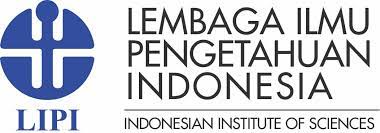UPAYA PENDIDIKAN ANTI KORUPSI PADA GENERASI MUDA: FOKUS PADA REMAJA DAN SANTRI
DOI:
https://doi.org/10.53866/aljabiri.v1i2.232Keywords:
anti-corruption attitude, planting Islamic values, Islamic perspective.Abstract
Corruption is a severe problem Indonesia faces and needs to be resolved with an extraordinary approach. Instilling an anti-corruption attitude among youth and students can help form a generation with integrity and the character of honesty, intelligence, consistency, courage in upholding the truth, and confidence in conveying what is true according to Shari'a rules. This study aims to explain the strategy of instilling an anti-corruption attitude among santri. The method used is library research with a literature review technique. This study's results explain that to realize good anti-corruption education, there needs to be a collaboration between parents, educators, and the government so that awareness of the dangers and effects of corruption can be prevented from an early age. Prohibition of corruption is not only based on state law but also prohibited by Islamic law. Therefore, instilling Islamic values such as honesty, caring, and independence in students and youth can help shape anti-corruption character in society
References
Carnwell, R. (2001). What is a literature review? Nursing Standard (Royal College of Nursing (Great Britain): 1987), 15(11), 45-51.
Fadhil, M. "Pendidikan Agama Islam, Internalisasi Nilai-Nilai Anti Korupsi Dan Pencegahan Tindak Pidana Korupsi." Journal of Research and Thought on Islamic Education (JRTIE) 2, no. 1 (2019): 44–60. https://doi.org/10.24260/jrtie.v2i1.1229.
Fatho, and Ni, T. Pesantren Dan Penanaman Sikap Anti Korupsi.
Hart, C. Doing a Literature Review: Releasing the Social Science Research Imagination. Sage publications, 2018.
Kusuma, A. W., & Santoso, A. B. (2018). Kontribusi Penyuluh Anti Korupsi Terhadap Peningkatan Kesadaran Masyarakat Dalam Upaya Pencegahan Korupsi di Indonesia. Jurnal Administrasi Publik, 2(1), 1-10. doi: 10.1017/CBO9781107415324.004
Lickona, T. Educating for character: How our schools can teach respect and responsibility. Bantam, 2012.
Ramdhani, N., Amin, M., & Ramdhani, M. A. (2014). A guideline to write academic research proposal. Journal of Education and Practice, 5(6), 146-152.
RISTEKDIKTI. "Pendidikan Anti Korupsi Untuk Perguruan Tinggi." edited by N. T.Dkk. Jakarta, 2018.
Sucipto, M. I. "Penanaman Nilai-Nilai Anti Korupsi." Jurnal Ilmiah Prodi Magister Kenotariatan 2 (2017-2018): 17.
Syarifuddin, Abu Humaid Arif. "Mewaspadai Bahaya Korupsi." https://almanhaj.or.id/13632-mewaspadai-bahaya-korupsi-2.html, 2022.
Suhartono. (2017, 20 Oktober). Sejarah Korupsi di Indonesia. Seminar Temuan Lintas Klaster Humaniora. Universitas Gadjah Mada, Yogyakarta.
Sulistiyani, N., & Susilawati, E. (2018). The importance of character education in shaping the nation’s character. Advances in Social Science, Education and Humanities Research, 227, 134-137. doi:10.2991/icited-18.2018.29
Tamrin Fathoni. "Pesantren Dan Penanaman Sikap Anti Korupsi." 1, no. 1 (2019): 26–42.
Widhiyaastuti, I Gusti Agung Ayu Dike, and I Gusti Ketut Ariawan. "Meningkatkan Kesadaran Generasi Muda Untuk Berperilaku Anti Koruptif Melalui Pendidikan Anti Korupsi." https://media.neliti.com/media/publications/242066-meningkatkan-kesadaran-generasi-muda-unt-4cbc4de2.pdf, 2022.
Widhiyaastuti, I Gusti Agung Ayu Dike, et al. Klinik Hukum Anti Korupsi Edukasi Pencegahan Melalui Street Law. Denpasar Bali: Udayana University Press, 2016.
Downloads
Published
Issue
Section
License
Copyright (c) 2023 Toufan Aldian Syah, Mujiningsih Mujiningsih, Rina Solihatin, Apriana Nengsi, Fakhrudin Akmal, Eric Setia Permana Ajie

This work is licensed under a Creative Commons Attribution-ShareAlike 4.0 International License.

















